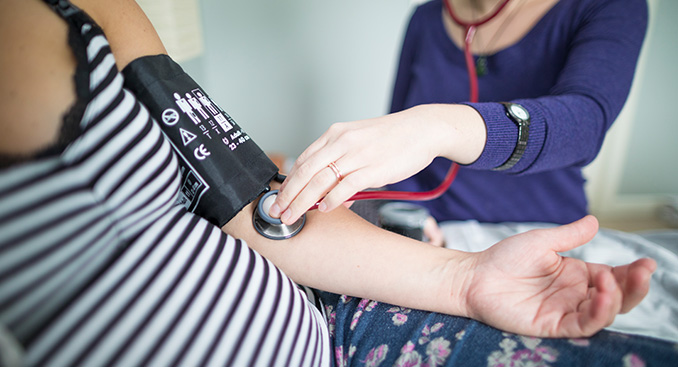4 Misconceptions about Nurse Midwives

Certified nurse midwives are surrounded by misconceptions. It is sometimes assumed that midwives only do natural births, only deliver babies in private homes, or don’t do other women’s health care. We’re here to clear up some of these misconceptions, with the help of Certified Nurse Midwife (CNM) Donna Bostick with TriHealth Women’s Services and TriHealth’s Oxford Obstetrics & Gynecology.
Misconception 1: Midwives are like physicians
Midwives are not physicians. The scope of practice does not include Caesarean birth, vacuum-assisted birth, or deliveries with forceps, and midwives do not have the same years of training. However, midwives licensed after the required education in nursing and midwifery, and can prescribe medication, order tests and make referrals to other specialists.
Misconception 2: Midwives only do natural births
Many people assume that a natural birth simply means a vaginal birth. However, midwives consider natural birth to be unmedicated. “Over my years of experience, I have seen fewer people choose unmedicated birth due to epidurals,” said Bostick. “However, it still does happen. A CNM can take care of both unmedicated and medicated patients as they give birth.”
Misconception 3: Midwives only do home births
“I have never had the desire to do home births,” said Bostick, noting that some midwives do attend to them. She went on to say that women can have a home-like birth in the hospital. “Just because all the medical equipment is there doesn’t mean you have to use it. However, just a few minutes without oxygen can make a difference in a newborn for the rest of its life – time is of the essence in an emergency and I want what I need close at hand if necessary.”
Misconception 4: Midwives only attend to births, and don’t provide other women’s care
Certified nurse midwives can do annual gynecologic exams for women during their child-bearing years and past menopause, including pap smears, testing for sexually transmitted infections, and gynecological problems.
Midwives differ from physicians in that they spend more time with their patients during labor and delivery, including postpartum support in areas such as breastfeeding and newborn care issues, and serve as their advocates during labor.
Midwives at TriHealth deliver at Good Samaritan, Bethesda North, and McCullough-Hyde Memorial Hospitals.